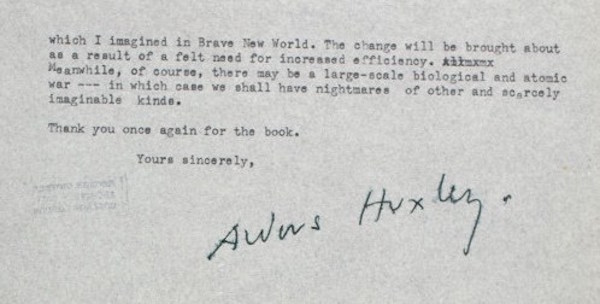Wikipedia reminds me ever so much of Winston Smith’s job in 1984 by George Orwell (or Eric Blair), as I recall Winston constantly rewrites the past to suit the needs of the present.
Surprisingly however (or not) Wikipedia’s entry for ‘Historical Revisionism (Negationism)’ doesn’t include any references to itself.
The chap in ‘Brazil’, the 1985 film by Terry Gilliam, has the same, or very similar, job to Winston, as I further recall.
My favourite ‘traditional’ dystopian story is Malcolm Bradbury’s ‘Fahrenheit 451‘, although I enjoyed Alan Moore’s ‘V for Vendetta‘ when it came out in 18 years ago, when I was 18, in 1988.
However I suspect that I’ll enjoy Aldous Huxley’s ‘Brave New World‘, when I eventually get around to reading it (although I didn’t get on with his ‘The Doors of Perception (1954)‘ which I read half-heartedly at 14).
I appear to have read, and own, an unhealthy amount of the material on Wikipedia’s list of dystopian literature – strangely my favourite author of ‘unsettling’ dystopian fiction, J. G. Ballard, doesn’t make the list at all – perhaps because Ballard focuses on the dysfunctional present and our dystopian modernity rather than a far flung fiction.
So is Wikipedia the symbol and reminder of our current dystopian situation or a of the good that can be derived from the “Hive Mind” and it’s approach to collectively working together to break down social, intelectual and technical problems ?
Of course the real truth is that for all the good that Wikipedia does it is still the great ‘Lowest Common Denominator‘ in many cases – and perhaps this isn’t such as bad thing as long as people are aware of it’s limitations, using it accordingly – long may it (and it descendants) reign.
